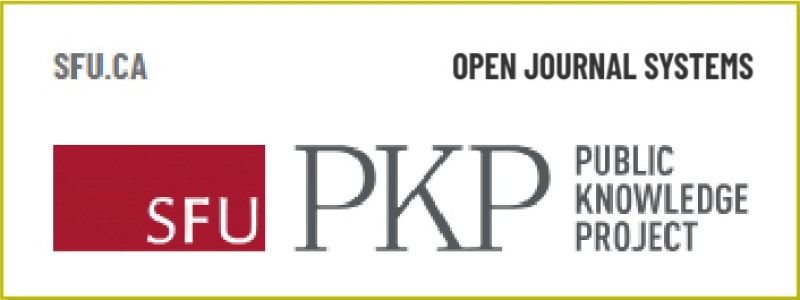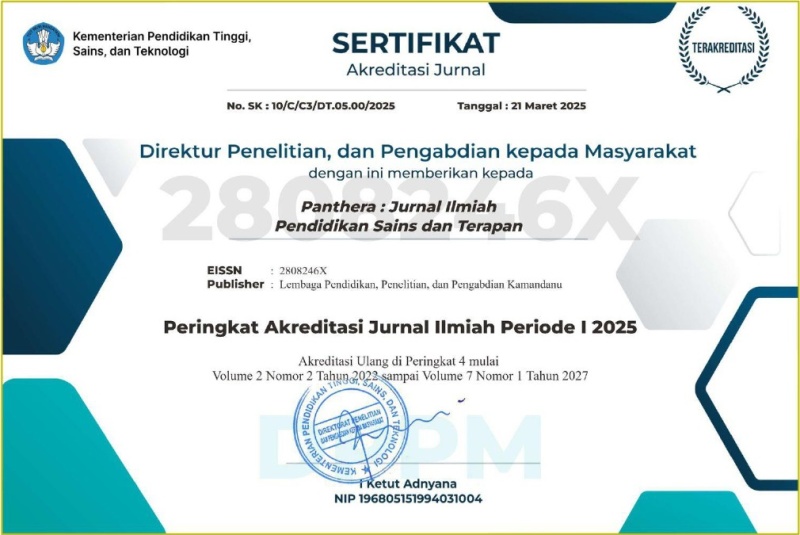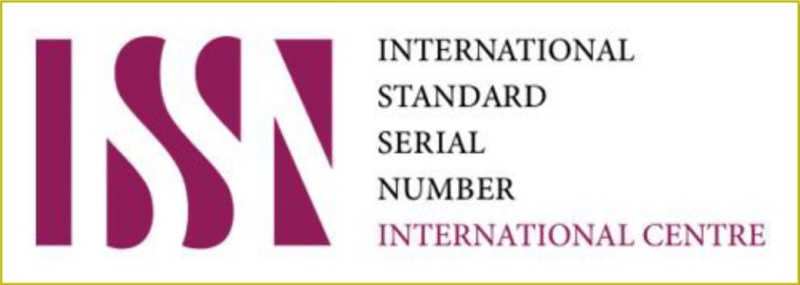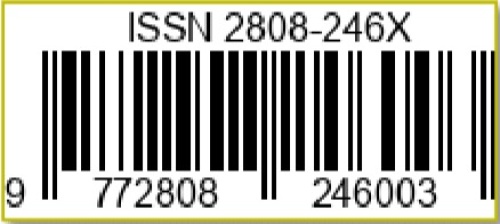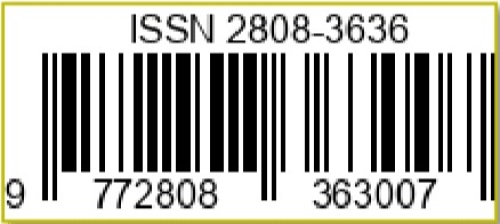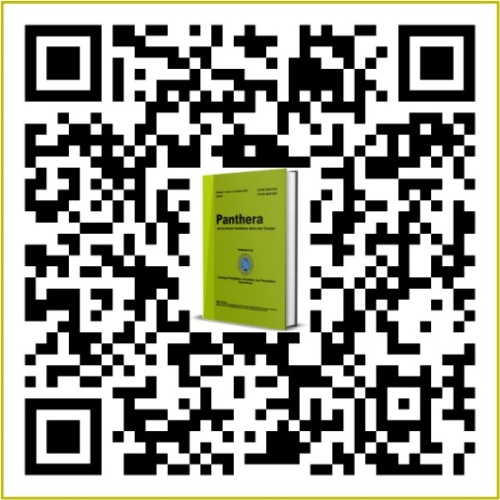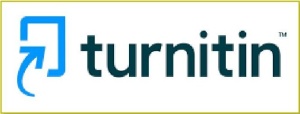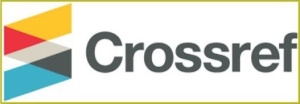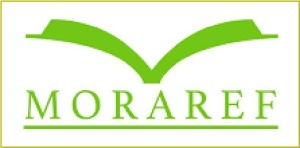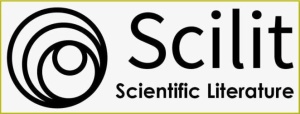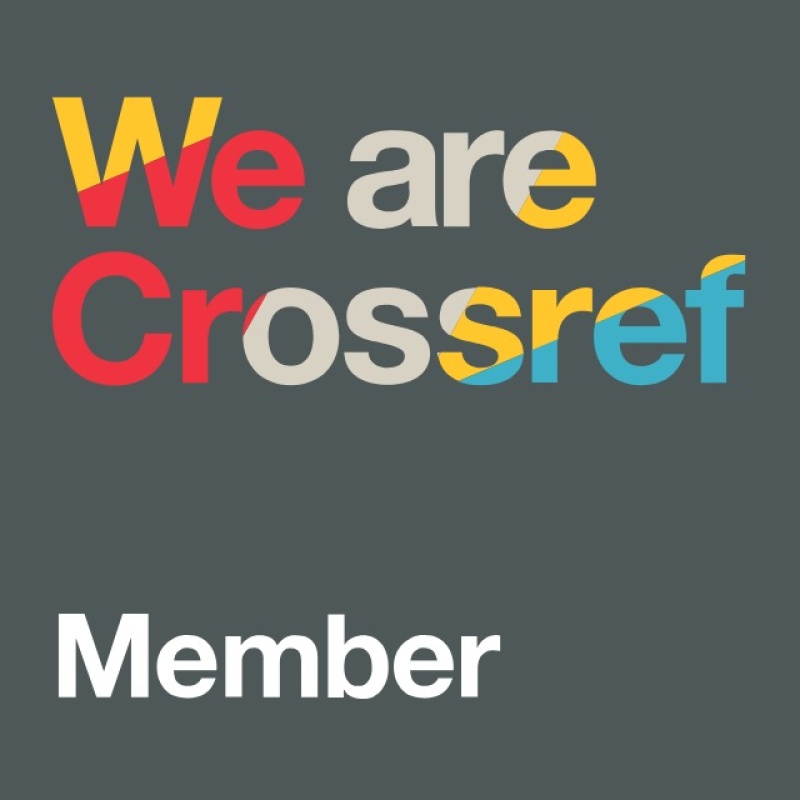Studi Profil Pemecahan Masalah Guru Matematika dalam Penyelesaian Soal Cerita Berbasis Strategi Heuristik Polya
DOI:
https://doi.org/10.36312/panthera.v5i4.789Keywords:
Mathematics Teacher, Problem Solving Word Problems, Polya Heuristic StrategyAbstract
Problem solving in word problems is one of the important competencies in mathematics learning that requires the ability to think critically, logically, creatively, and reflectively. This study aims to describe the profile of mathematics teachers' problem-solving abilities in solving word problems based on Polya heuristic strategies. The type of research used is qualitative descriptive with a case study design. The research subjects consisted of 16 mathematics teachers from State Junior High Schools in West Lombok Regency who were selected using purposive sampling techniques. Data collection was carried out through triangulation of sources using tests, interviews, and questionnaires. The data were analyzed in a qualitative descriptive manner to illustrate the level of application of the Polya heuristic strategy. The results showed that teachers who applied the Polya heuristic stages were complete by 20%, 30% were incomplete, 45% were incomplete, and 5% were incomplete. The low implementation of this strategy is due to the limitations of professional training, the lack of application of heuristic strategies in learning activities, and the low level of thinking skills (Higher Order Thinking Skills or HOTS). In general, teachers' ability to apply Polya heuristic strategies still needs to be improved through training and habituation of problem-solving-based learning.
Downloads
References
Abimanyu, A. S., & Pratama, F. W. (2023). Analisis Pemecahan Masalah Matematika pada Mahasiswa Calon Guru Matematika dengan Tipe Kecerdasan Linguistik dan Logis Matematis. Jurnal Ilmiah Pendidikan Citra Bakti, 10(3), 673-683. https://doi.org/10.38048/jipcb.v10i3.1716
Aeni, T. N. (2024). Students’ Errors in Solving Mathematical Story Problems Based on Polya’s Solution Steps. Jurnal Inovasi Pembelajaran Matematika, 3(1), 113-126 https://doi.org/10.31980/pme.v3i1.1779
Agusfianuddin, A., Herman, T., & Turmudi, T. (2024). Investigation of Students' Difficulties in Mathematical Language : Problem-Solving in Mathematical Word Problems at Elementary Schools. Jurnal Kependidikan : Jurnal Hasil Penelitian dan Kajian Kepustakaan di Bidang Pendidikan, Pengajaran dan Pembelajaran, 10(2), 578-590. https://doi.org/10.33394/jk.v10i2.11257
Aldahmash, A. H., Alshalhoub, S. A., & Naji, M. A. (2021). Mathematics Teachers’ Reflective Thinking: Level of Understanding and Implementation in their Professional Practices. PLoS ONE, 16(10), 1-17. https://doi.org/10.1371/journal.pone.0258149
Bachmann, H. (2021). Pólya’s Four Step Problem Solving Method. Nagoya: Graduate School of Mathematics, Nagoya University.
Bruno, A., Qohar, A., Susanto, H., & Permadi, H. (2021). Students’ Difficulties in Solving Problems with Math Story Problems Seen from Adversity Quotient (AQ). Edumatica : Jurnal Pendidikan Matematika, 11(3), 91-103. https://doi.org/10.22437/edumatica.v11i03.15395
Creswell, J. W. (2015). Educational Research: Planning, Conducting, and Evaluating Quantitative and Qualitative. New York: Pearson Education, Inc.
Dahiana, W. O., Herman, T., Nurlaelah, E., & Pereira, J. (2024). Student Semiotic Representation Skills in Solving Mathematics Problems. Jurnal Didaktik Matematika, 10(1), 34-47. https://doi.org/10.24815/jdm.v10i1.30770
Güç, F. A., & Daltaban, D. (2021). An Investigation of the Use of Specific Problem-Solving Strategies by Mathematics Teachers in Lessons. Journal of Pedagogical Research, 5(1), 126-140. https://doi.org/10.33902/JPR.2021067307
Habibie, Z. R., Waluya, S. B., & Dewi, N. R. (2022). Learning Mathematics with Polya Heuristic Strategies to Increase Students’ Critical Thinking Ability. In Proceedings of International Conference on Science, Education, and Technology (pp. 1076-1081). Semarang, Indonesia: Universitas Negeri Semarang.
Hadiyanti, Y. R., & Manurung, M. M. H. (2025). A Qualitative Analysis of Students’ Errors in Fraction Word Problems Based on Polya’s Stages of Problem Solving: Evidence from Papua, Indonesia. Edumatica : Jurnal Pendidikan Matematika, 15(1), 1-13. https://doi.org/10.22437/edumatica.v15i2.43746
Haris, D. J. B. A., Herman, T., & Hasanah, A. (2025). Analysis of Students’ Comprehension in Solving Social Arithmetic Problems Based on Polya Steps. Eduvest : Journal of Universal Studies, 5(5), 5536-5546. https://doi.org/10.59188/eduvest.v5i5.51174
Hourigan, M., & Leavy, A. M. (2023). Elementary Teachers’ Experience of Engaging with Teaching through Problem Solving Using Lesson Study. Mathematics Education Research Journal, 35(5), 901-927. https://doi.org/10.1007/s13394-022-00418-w
Jacinto, H., & Carreira, S. (2023). Knowledge for Teaching Mathematical Problem-Solving with Technology: An Exploratory Study of a Mathematics Teacher’s Proficiency. European Journal of Science and Mathematics Education, 11(1), 105-122. https://doi.org/10.30935/scimath/12464
Jiang, Y., Ma, L., & Gao, L. (2016). Assessing Teachers' Metacognition in Teaching: The Teacher Metacognition Inventory. Teaching and Teacher Education, 59(1), 403-413. https://doi.org/10.1016/j.tate.2016.07.014
King, F. J., Goodson, L. & Rohani, F. (2018). Higher Order Thinking Skills: Definition, Teaching Strategies, & Assessment. Florida: A Publication of the Educational Services Program, Now Known as the Center for Advancement of Learning and Assessment, Florida.
Maulyda, M. A., Hidayati, V. R., Rosyidah, A. N., & Nurmawanti, I. (2019). Problem-Solving Ability of Primary School Teachers Based on Polya’s Method in Mataram City. Pythagoras : Jurnal Matematika dan Pendidikan Matematika, 14(2), 139-149. https://doi.org/10.21831/pg.v14i2.28686
Norhanah, N. (2022). Implementasi Lesson Study dalam Meningkatkan Profesionalisme Guru. Tunas : Jurnal Pendidikan Guru Sekolah Dasar, 7(2), 117-125. https://doi.org/10.33084/tunas.v7i2.3691
Phaladi, M., Petrus, R. M., & Mwakapenda, W. (2024). The Role of Language in Solving Mathematical Word Problems among Grade 9 Learners. Dirasat : Human and Social Sciences, 51(3), 310-322. https://doi.org/10.35516/hum.v51i3.650
Polya, G. (1973). How to Solve it: A New Aspect of Mathematical Method (2nd Ed.). New Jersey: Princeton University Press.
Pradana, L. N. (2024). Problem-Solving Strategy: Mathematical Problem-Solving Model Within the Polya’ Framework. KnE Social Sciences, 9(6), 728-740. https://doi.org/10.18502/kss.v9i6.15327
Prihatnani, E., & Supriyadi, D. (2021). Proses Metakognisi Mahasiswa Calon Guru Matematika dalam Memecahkan Masalah Piramida Hitung. Jurnal Riset Pendidikan Matematika, 7(2), 210-226. https://doi.org/10.21831/jrpm.v7i2.36732
Rosyada, M. N., & Retnawati, H. (2021). Challenges of Mathematics Learning with Heuristic Strategies. Al-Jabar : Jurnal Pendidikan Matematika, 12(1), 161-173. https://doi.org/10.24042/ajpm.v12i1.8730
Sani, R. A. (2019). Pembelajaran Berbasis HOTS (Higher Order Thinking Skills). Tangerang: Tira Smart.
Santagata, R., König, J., Scheiner, T. (2021). Mathematics Teacher Learning to Notice: A Systematic Review of Studies of Video-Based Programs. ZDM Mathematics Education, 53(1), 119-134. https://doi.org/10.1007/s11858-020-01216-z
Schoenfeld, A. H. (2016). Learning to Think Mathematically: Problem Solving, Metacognition, and Sense-Making in Mathematics. Journal of Education, 196(2), 1-38. https://doi.org/10.1177/002205741619600202
Siskayanti, W. D., Nurhidayati, S., & Safnowandi, S. (2022). Pengaruh Model Problem Based Instruction Dipadu dengan Teknik Probing Prompting terhadap Kemampuan Berpikir Kritis dan Hasil Belajar Kognitif. Panthera : Jurnal Ilmiah Pendidikan Sains dan Terapan, 2(2), 94-112. https://doi.org/10.36312/pjipst.v2i2.76
Sufa, F. F. (2022). Profil Tingkat Kesulitan Guru Matematika dalam Penerapan Pembelajaran Berbasis HOTS Dilihat dari Dimensi Penilaian. Jurnal Riset Pembelajaran Matematika, 4(2), 37-42. https://doi.org/10.55719/jrpm.v4i2.512
Sugiyono, S. (2018). Metode Penelitian Kuantitatif, Kualitatif, dan R&D. Bandung: CV. Alfabeta.
Sulaiman, N., & Ayub, A. F. M. (2023). Teacher’s Perception Towards Teaching and Learning Practice Based on HOTS in Mathematics. Contemporary Mathematics and Science Education, 4(1), 1-6. https://doi.org/10.30935/conmaths/13074
Usta, N. (2020). Evaluation of Preservice Teachers’ Skills in Solving Non-Routine Mathematical Problems through Various Strategies. Asian Journal of Education and Training, 6(3), 362-383. https://doi.org/10.20448/journal.522.2020.63.362.383
Widana, I. W., Parwata, I. M. Y., Parmithi, N. N., Jayantika, I. G. A. T., Sukendra, K., & Sumandya, I. W. (2018). Higher Order Thinking Skills Assessment Towards Critical Thinking on Mathematics Lesson. International Journal of Social Sciences and Humanities, 2(1), 24-32. https://doi.org/10.29332/ijssh.v2n1.74
Yorulmaz, A., Uysal, H., & Çokçalışkan, H. (2021). Pre-Service Primary School Teachers’ Metacognitive Awareness and Beliefs about Mathematical Problem Solving. JRAMathEdu : Journal of Research and Advances in Mathematics Education, 6(3), 239-259. https://doi.org/10.23917/jramathedu.v6i3.14349
Downloads
Published
How to Cite
Issue
Section
License
Copyright (c) 2025 Agusfianuddin, Ahmad Muzaki, & Sabrun

This work is licensed under a Creative Commons Attribution-ShareAlike 4.0 International License.
-
Attribution — You must give appropriate credit, provide a link to the license, and indicate if changes were made. You may do so in any reasonable manner, but not in any way that suggests the licensor endorses you or your use.
-
ShareAlike — If you remix, transform, or build upon the material, you must distribute your contributions under the same license as the original.


